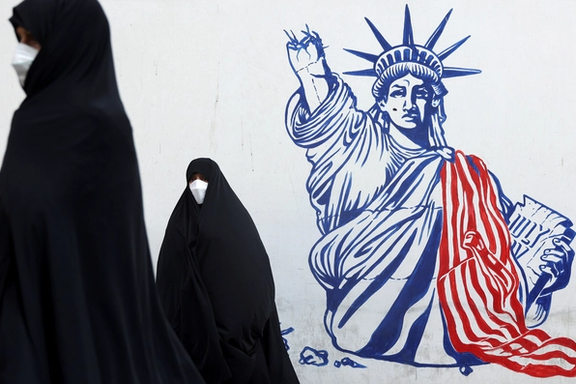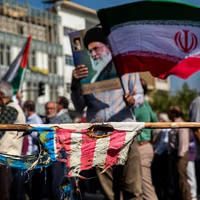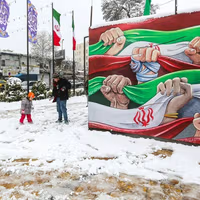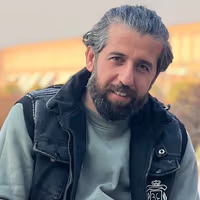IAEA Begins To Reinstall Cameras At Iran Nuclear Facilities: Grossi
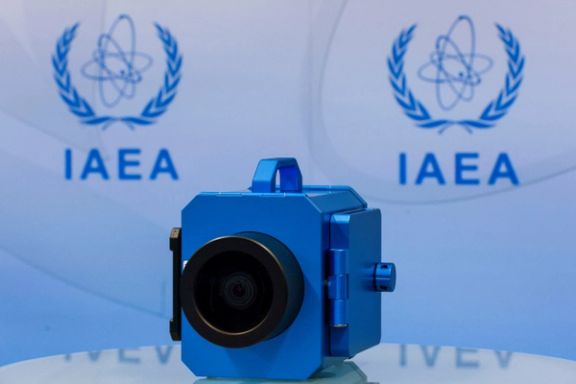
The International Atomic Energy Agency started re-installing the removed surveillance cameras in Iran.

The International Atomic Energy Agency started re-installing the removed surveillance cameras in Iran.
After Western powers introduced a resolution in June 2022 to censure Iran over its nuclear program, Iran turned off a number of nuclear watchdog cameras.
In an interview with PBS NewsHour on Monday, IAEA Director-General Rafael Mariano Grossi said the agency is installing cameras and reconnecting some online monitoring systems.
The IAEA is responsible for monitoring and verifying Iran’s compliance with the 2015 nuclear deal, which limited the country’s nuclear activities in exchange for sanctions relief.
Iran has been gradually scaling back its commitments under the deal in response to the US withdrawal from the agreement and the re-imposition of sanctions.
The IAEA has been able to continue its monitoring of Iran’s nuclear program through other means, including satellite imagery, but the loss of the cameras raised concerns about the agency’s ability to detect any potential covert activities.
On March 4, 2023, Iran and the IAEA agreed to a new plan to allow the agency to reinstall certain surveillance equipment in the country.
As soon as the agreement was announced, the Atomic Energy Organization of Iran and IAEA offered different interpretations about what it would include, raising questions about its implementation.
Grossi did not indicate whether Iran would allow the agency to install an online enrichment monitor at Fordow where the agency detected 84 percent enriched uranium in January.
In addition, he did not address whether the IAEA would have access to the recordings made by the cameras or whether Tehran would turn over the data only if the JCPOA was restored.
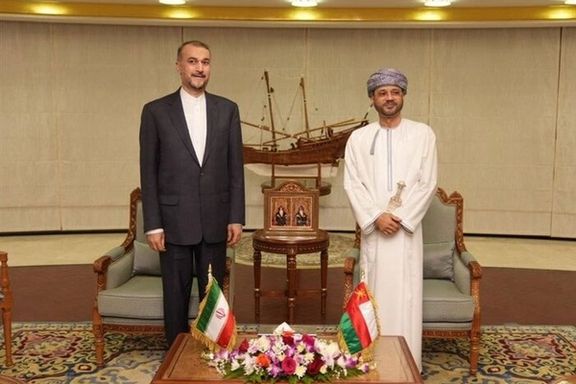
Iran’s foreign minister Hossein Amir-Abdollahian during a visit to Oman has discussed the conflict in Yemen and the status of Iran’s nuclear talks with the West.
Iran’s official news agency IRNA reported Wednesday that Amir-Abdollahian met with Oman’s foreign minister Sayyid Badr Albusaidi and thanked him for mediation efforts by Sultan Haitham bin Tariq and the government of Oman “for their positive role” in JCPOA nuclear talks.
IRNA quoted Amir-Abdollahian as saying, “In addition to issues relating to expanding relations, I discussed regional issues with my Omani counterpart, as well as international problems, such as Palestine, Yemeni reconciliation and the situation in Sudan.”
IRNA commented that Oman has played an important role in Iran’s nuclear talks, “exchange of prisoners between Iran and the West”, and contacts between Iran and Saudi Arabia.
Oman has long played a mediating role between Tehran and Washington. First contacts in 2013 to launch nuclear talks were facilitated by Oman.
Meanwhile, Russian foreign minister Sergei Lavrov visiting the United Nations in New York, told reporters during a news conference on Tuesday that the revival of the JCPOA nuclear deal does not depend on Russia, China or Iran, indirectly accusing the United States for freezing talks.
The European Union presented a compromise agreement draft to Iran and Western powers last August, after 18 months of talks, but the United States accused Iran of stonewalling and presenting “extraneous” demands. In October, Washington said it is not focused on the talks any longer, demanding that Iran stop weapons supplies to Russia, among other things.
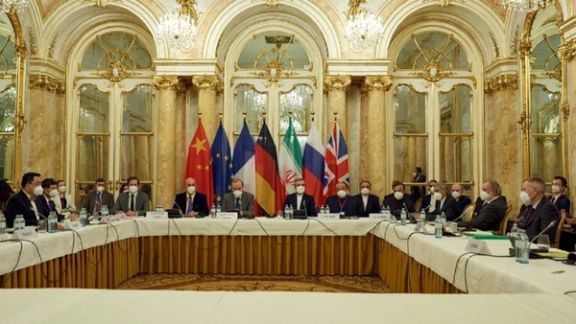
Iranian media have been expressing renewed concerns lately over the unclear fate of the country's 2015 nuclear deal with world powers.
Reformist daily Shargh wrote in a commentary on April 20 that economic, political and social conditions in Iran are fragile and the three challenges of Iran's involvement in the Ukraine war, differences with International Atomic Agency (IAEA) over "safeguard" issues and the Iranian regime's human rights record cast a shadow of doubt over the future of the nuclear deal (JCPOA).
Media commentator and former diplomat Ali Bigdeli wrote in a commentary in Etemad Online that the revival of the nuclear deal is the prerequisite for maintaining relations with all the of the regional countries. Bigdeli added that "although Saudi Arabia has said that it is prepared to invest in Iran, no investment will be possible without first solving the problem of the JCPOA."
During the past six weeks, media in Tehran have been discussing the implications of Iran's rapprochement with Saudi Arabia on the future of Tehran's foreign policy and developments in West Asia and beyond. The media generally believe that the resumption of ties between Tehran and Riyadh is a prelude to a wider range of developments in Yemen and Syria and will also positively affect ties between Saudi Arabia and Palestinian groups, Shargh wrote.
Shargh newspaper argued that the improved relations with Riyadh can also lead to the mending of Iran's regional ties with countries such as Bahrain, Jordan and Egypt.
However, the significance of the rapprochement with Saudi Arabia has even overshadowed by other issues such as the fate of Iran's nuclear program and Tehran's negotiations with the United States to revive the JCPOA. But a key question is whether Iran now believes it no longer needs to settle its differences with the IAEA and revive the nuclear deal.

The spokesman for the Iranian Foreign Ministry Naser Kanaani has responded to the same question by reiterating that the current government in Iran will not mix the issue of a nuclear agreement with key economic issues or diplomacy in other areas.
Kanaani further said that Tehran will benefit from the rapprochement with Riyadh to serve its interests and enhance its coordination with regional countries and beyond.
Regardless of how consistent the spokesman's statement is with what is taking place on the ground, Shargh noted, that Iran's relations with Saudi Arabia are affected by international developments. Shargh argued in the commentary that Iran cannot ignore the significance of reviving the JCOA in its international relations. If Tehran mends its ties with the big powers, its regional relations will also be put on the right track.
Bigdeli in his commentary maintained that Saudi Arabia's first motivation for the rapprochement with Iran was end the Yemeni crisis. Riyadh needed to end the conflict in Yemen to be able to further major development projects on the shores of the Red Sea. Riyadh also needed security for its $500 billion project to build a new city. Bigdeli added that Riyadh has undertaken to reconstruct Yemen, pay the government employees’ deferred salaries and create a central government in Sana.
For Iran, the benefit was to end it isolation in the region. Nonetheless, Iran is eyeing the diplomatic rather than the economic benefits of the restoration of its ties with Saudi Arabia. Without resolving the JCPOA issue and opening the international banking system shut off by US sanctions, no one can invest in Iran. Bigdeli added that even an interim agreement with the United States will not solve Iran's problems although it may instil hope in Tehran.

Iran's nuclear chief Mohammad Eslami says Tehran and UN atomic watchdog, the IAEA, are in constant contact and talks between the two sides are progressing.
Eslami said Tuesday that the talks with the International Atomic Energy Agency are pursued and experts report daily on the progress.
Meanwhile, in a communique, G7 foreign ministers meeting in Japan reiterated Tuesday that Iran should never develop nuclear weapons.
“We call on Iran to fulfil its legal obligations and political commitments regarding nuclear non-proliferation without further delay,” G7’s final communique said.
Additionally, the G7 ministers expressed concern over Iranian destabilizing activities in the region and weapons transfers to Russia.
During a trip to Tehran in early March, IAEA's director Rafael Grossi said he reached an agreement to ensure Iran's full cooperation and said more meetings would take place soon.
His visit came amid discussions with Iran about uranium particles enriched to up to 83.7% purity, very close to weapons grade, at its Fordow enrichment plant.
Iran claims its nuclear program is for peaceful purposes only. However, the US and its allies suspect that the Islamic Republic is seeking to develop nuclear weapons. The US imposed strict economic sanctions on the country in an effort to force it to change course.
Iran signed an agreement with six major world powers in 2015 in exchange for relief from US, European Union, and UN sanctions on its nuclear program.
However, former US President Donald Trump reneged on the deal in 2018, restoring harsh US sanctions, which resulted in Iran violating the deal's nuclear limits.
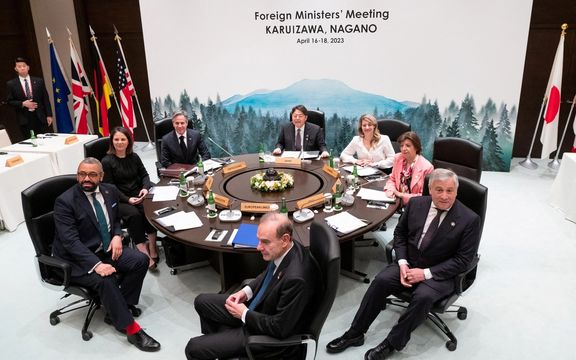
G7 foreign ministers meeting in Japan reiterated Tuesday that Iran “must never develop nuclear weapons,” and urged Tehran in a communique to cease nuclear escalation.
“We call on Iran to fulfil its legal obligations and political commitments regarding nuclear non-proliferation without further delay,” G7’s final communique said.
The G7 minister also expressed concern over Iran’s “destabilizing activities” in the region and transfer of weapons to Russia.
The United States, United Kingdom, France and Germany are the original signatories of the 2015 JCPOA nuclear agreement with Iran that restricted its nuclear program in exchange for suspension of international sanctions.
However, after US withdrawal from the deal in 2018 and imposition of sanctions, Tehran announced it will not be bound by JCPOA limitations and began enriching uranium at higher levels than set in the agreement.
Russia and China, Iran’s traditional allies, were also JCPOA signatories, but they put the onus of the deadlock on the United States, urging Washington to end its sanctions against Iran.
Subsequent negotiations in 2021 and 2022 to revive the JCPOA reached a deadlock last September, as Iran contuse to enrich uranium at the dangerously high 60-percent purity. Western government and experts say that it would be relatively easy and fast for Iran to enrich at 90 percent needed for producing a nuclear bomb. Iran has amassed enough enriched uranium at 60-percent that it can now further refine the stockpile and build two bombs.
“We remain deeply concerned about Iran’s unabated escalation of its nuclear program, which has no credible civilian justification and brings it dangerously close to actual weapon-related activities,” the G7 top diplomats said.
However, the G7 said that diplomacy remains their preferred path toward an agreement with Iran.
After talks broke down last year, Washington said that Tehran had balked at accepting a European Union compromise draft agreement and had presented “extraneous demands.”
Iran also has a major disagreement with UN’s International Atomic Energy Agency (IAEA) over its secret nuclear activities more than two decades ago and has failed to provide satisfactory answers to the international watchdog.
The west had a chance to censure the Islamic Republic in IAEA’s board meeting in early March, but days before the meeting the Agency’s head Rafael Grossi decided to travel to Tehran and seek an agreement.
The result was that the two sides announced a deal for quick cooperation and Grossi returned with a “peace in our times” paper claiming his trip was not a failure.
Since then there has been no news of a follow-up or meetings between IAEA experts and Iranian officials to pursue a resolution to technical matters.
The G7 communique referred to this issue, once again asking Tehran to cooperate, while in March it decided not to censure Iran.
“We take note of Iran’s stated readiness to provide the IAEA with further information and access to address the outstanding safeguards issues, and its agreement to allow the IAEA to implement further appropriate verification and monitoring activities,” G7 ministers stated.
One reason the United States has put nuclear talks on ice is Iran’s supply of weapons to Russia.
“Iran must stop supporting the Russian military in its war of aggression. In particular, we call upon Iran to cease transferring armed UAVs, which have been used in Ukraine,” G7 demanded, and also brought up Tehran’s human rights violations.
“We reiterate our profound concern over Iran’s systemic human rights violations and abuses, especially with Iran’s efforts to oppress peaceful dissent through threats and intimidation.”
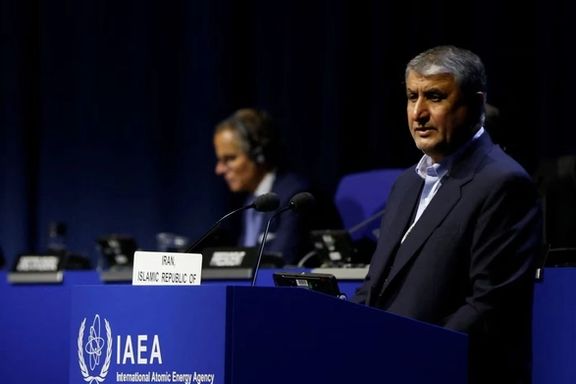
The past year was a year full of tensions and Iran faced complex behaviors by Western powers, nuclear chief Mohammad Eslami said at the Friday Prayers in Tehran.
Eslami who is the head of the Atomic Energy Organization of Iran (AEOI) addressed the Friday congregation at its traditional venue in Tehran University, trying to portray the country’s nuclear program as a beacon of its scientific achievements and useful for civilian purposes.
Eslami also reiterated a common propaganda point by the Islamic Republic that Western powers do not want Iran and similar countries to gain access to technology, an argument debunked by economic progress China, South Korea, and others have made.
“New technologies are the arena of domination,” Eslami claimed, adding that Iran is being “punished for its progress.”
Anti-regime Iranians know this well and hold the Islamic Republic responsible for their economic pain and the country’s international isolation, as well as lack of freedoms and repression.
Iran’s secret nuclear program was revealed in 2002, followed by international and particularly Western pressure to come clean and accept monitoring by the International Atomic Energy Agency (IAEA), as well as limit the degree of its uranium enrichment to civilian uses.
After years of diplomacy, world powers, including Russia and China, agreed to impose sanctions on Tehran to force it to come to an agreement. In 2015, the Joint Comprehensive Plan of Action (JCPOA) was signed between Iran, the United States, United Kingdom, France, Germany, Russia and China, suspending the sanction in exchange for limiting the nuclear program.
However, in 2018, former US President Donald Trump withdrew from the agreement, criticizing it as a weak deal that would allow Iran to pursue nuclear weapons once the agreement’s sunset clauses kicked in.
Eslami said that despite Western declarations of a desire to return to the JCPOA, “they were not committed to their own rationale and words,” putting Iran in a tough position. “They exceeded in putting pressures,” he added.
The US withdrawal was followed by new American sanctions on Iran’s economy, which began to seriously affect its finances. Tehran announced that it would no longer abide by JCPOA limitations and would increase both the quantity and level of its enrichment. However, once President Joe Biden won the 2020 election and vowed to return to the JCPOA, Tehran announced its decision to increase the enrichment level to 20 and then 60 percent, getting closer to weapons-grade uranium.
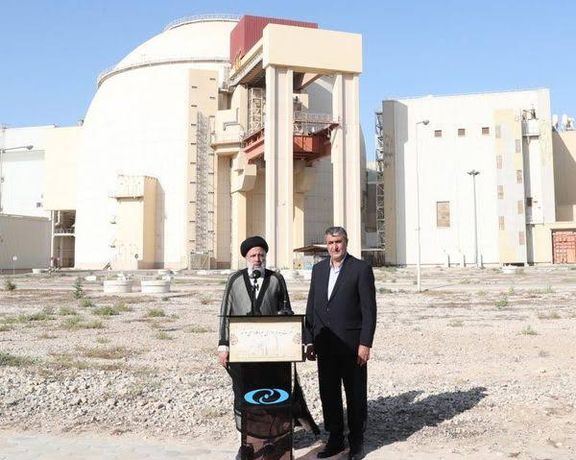
Negotiation followed in Vienna from April 2021, but by September 2022 the talks had reached a deadlock. Iran is now accumulating 60-percent uranium, while the US is maintaining the sanctions and saying that Tehran was deceptive during the talks and a return to the JCPOA is no longer on its agenda.
While Eslami in his speech tried to claim that the nuclear program has a useful civilian role, 60-percent enrichment can only have a military purpose – reaching the 90-percent weapons grade level.
The economic cost of the nuclear program has been very high for Iran, keeping economic growth near zero for more than a decade, leading to widespread poverty, antigovernment protests and one of the worst government repressions of the 21st century.
Opponents argue that the government did not need to make the country a hostage to its nuclear program, which has had virtually no economic benefit and only made the people of Iran suffer the price of punishing sanctions.
If the country had been transparent and abided by non-proliferation rules, it could have bought enriched uranium for civilian purposes from other countries. It’s intransigence has led to nothing but global isolation and the suffering of the Iranian people.
